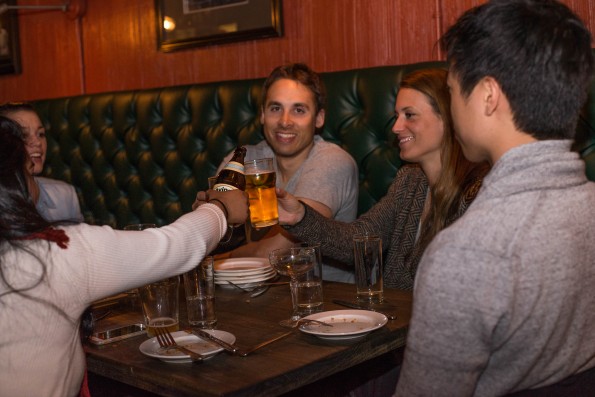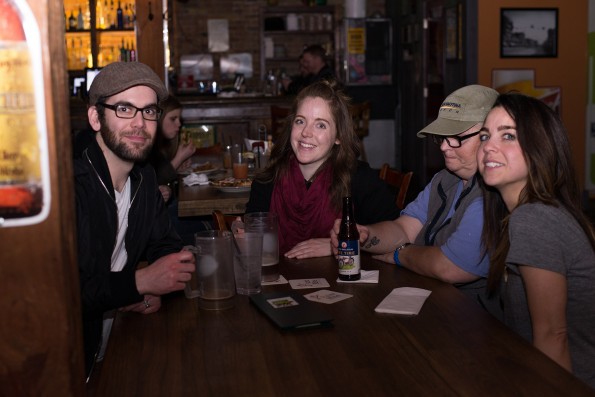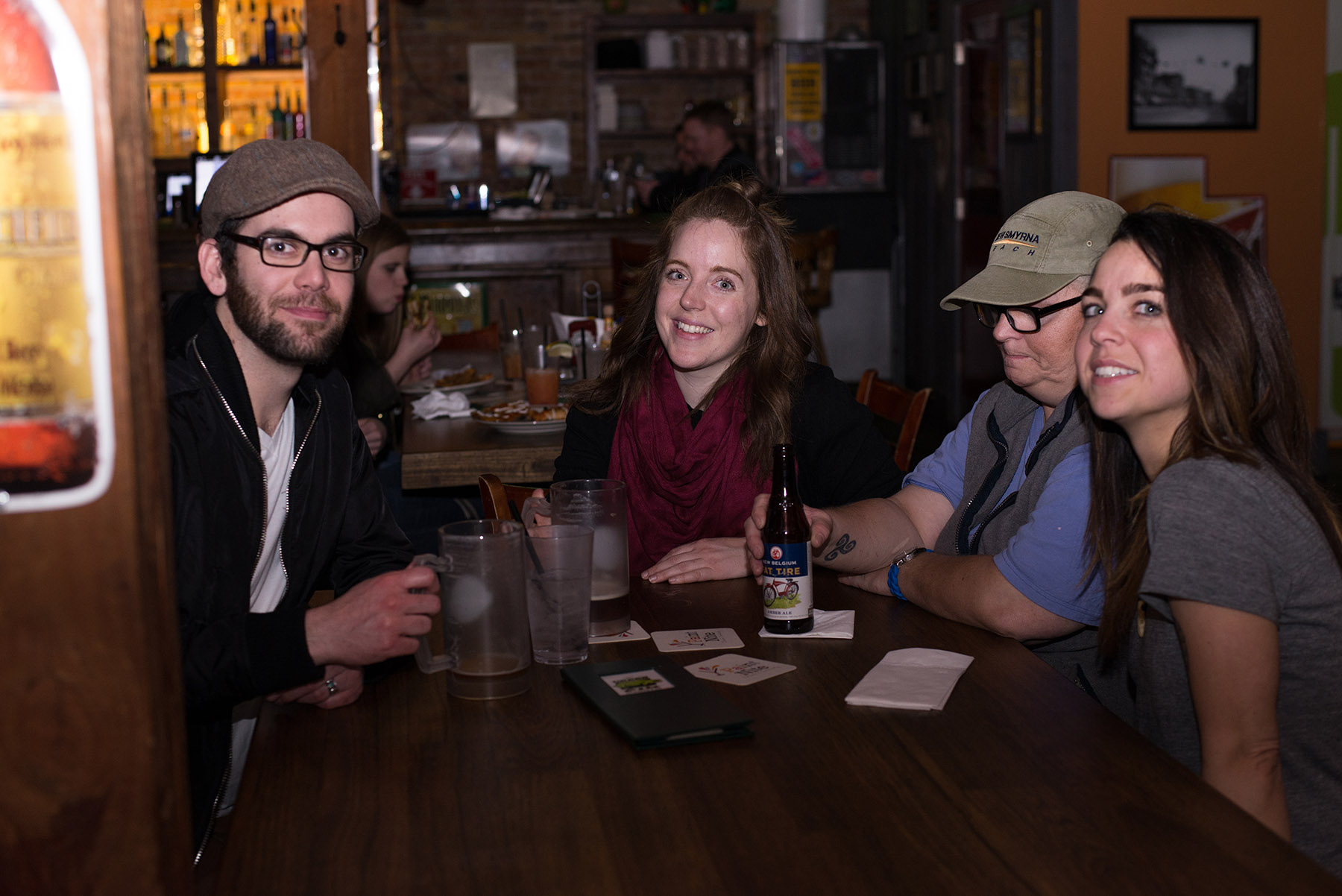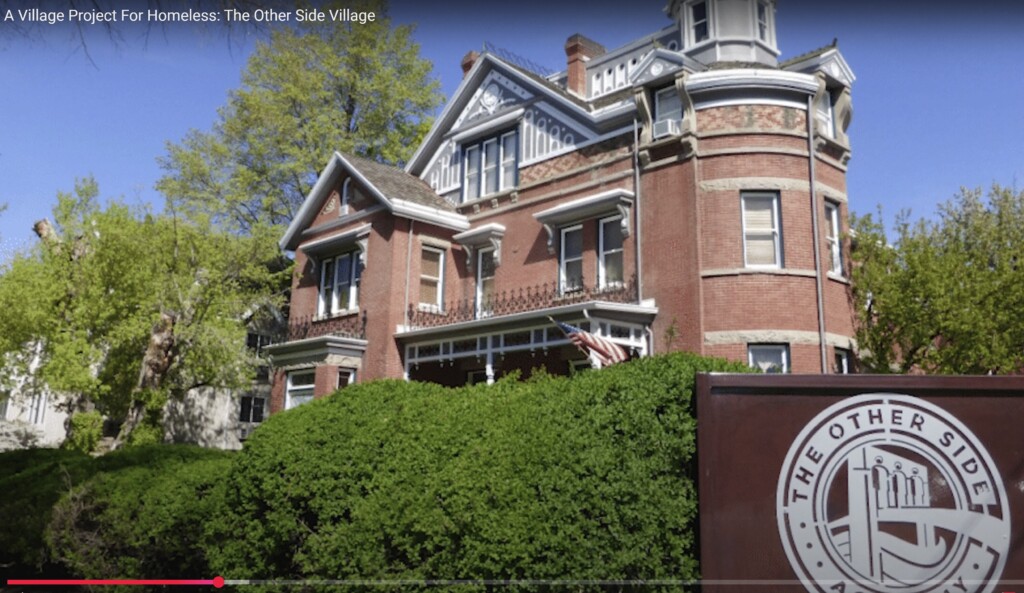
As our March beer issue draws to a close we return to an examination of how micro-brewers helped usher in the “local” movement.
The “big” micro-breweries of Squatters, Wasatch and Uinta Brewing are now owned in large part by private equity firms. The original owners of these breweries have cashed in and sold a large portion of their businesses to the bigger fish who want in on the craft beer craze. Market share of craft breweries keeps increasing and by 2020 could surpass 25 percent of total demand.
Squatters and Wasatch were bought by a firm out of Boston called Fireman Partners. Soon after three of their longtime employees were laid-off including head brewer Dan Burick.
Fireman was responsible for building the Yankee Candle brand, and bringing that store to nearly every major mall in America. They feel they can growth the brands of Squatters and Wasatch beers to much larger markets. So far they have done a great job, their sales have increased by over twenty percent per year since they were bought.
Uinta Brewing also recently sold a significant share of their business to an investment group called Riverside. Steve Mills, former Vice President of Sales for Duvel USA and Boulevard Brewing Company, has become the Chief Executive Officer. As to who now owns Uinta Brewing and by what percentages the original owners Will Hamill and Steve Kuftinec still maintain ownership— they have not said, and they don’t want to say. Uinta grew by nearly 30% in 2015 and they are Utah’s largest brewery. In the past five years they have tripled their brewing capacity and they have done very well at expanding into more than 30 new markets. They have found success especially in the Eastern United States. Now Uinta is brewing over 100,000 barrels of beer per year. Cutthroat and 801 are Utah’s top selling beers.
The United States largest microbrewery is Sierra Nevada, they have now exceeded brewing over 1 million barrels of beer per year. And it doesn’t seem that Utah’s top brands are slowing down any time soon. But what about Utah’s smaller breweries? What about those who didn’t have a lot of capital to enter into the market?
Shades of Pale is probably the most boot-strapped microbrewery in Utah. Trent Fargher started his brewery at the same time Epic Brewing was launched, but he didn’t have much cash to start his business. Instead he started very small and has grown slowly and organically. He expanded about a year ago moving his operations from Park City to South Salt Lake City. He says that the big craft breweries are now making moves to maintain their dominance on maintaining market share. They are doing this in a few ways that seem apparent.
Fargher says that the price of glass bottles has nearly doubled since he entered into the craft beer business. This is because just two companies maintain a monopoly on glass, and despite the price of oil and gasoline plummeting, they keep raising their prices, “just because they can,” said Fargher. It now costs smaller buyers like Shades of Pale 54 cents for each twenty-two ounce bottle they buy. This is up from 22 cents when they started. Fargher says the price of hops has also doubled. His small bottling machine cost him $66,000 and the company offers no technical assistance, “because they can’t produce these as fast as they can sell them.” The cost of grain just went up by four cents, and to top it off, the bigger breweries in Utah keep lowering their prices at the grocery stores offering their six-packs for sale prices. “Supplier prices keep increasing and margins keep shrinking, forcing the smaller breweries out.” Fargher says this is by design.
Fargher estimates that the bigger micro-breweries pay far less for their bottles and other supplies because they buy in volume and have sweetheart deals with suppliers. He says this is by design to prevent smaller breweries from infringing on market share. Utah Stories was not able to confirm or contradict this assessment.
However, one bill in Utah’s State Legislature is indicative of how the big players vs. the smalls is playing out. HB 228 has been introduced to change the language on the ways in which liquor is allowed to be sampled at wineries, breweries and distilleries. The existing large distillery High West, as well as UBC (Squatters and Wasatch’s sales area) would like to have the provision that food be served with samples. This would be terrible for smaller breweries and small distilleries if this bill passes. None of the new craft distilleries or breweries serve food, and don’t have the resources to open kitchens (certified by the healthy department) in their facilities to satisfy the law. According to Falgher, UBC and High West have a lobbyist who is fighting to have the food provision simply because they know it would make it more difficult for smaller players to compete. The bill was signed into law on March 25th.







